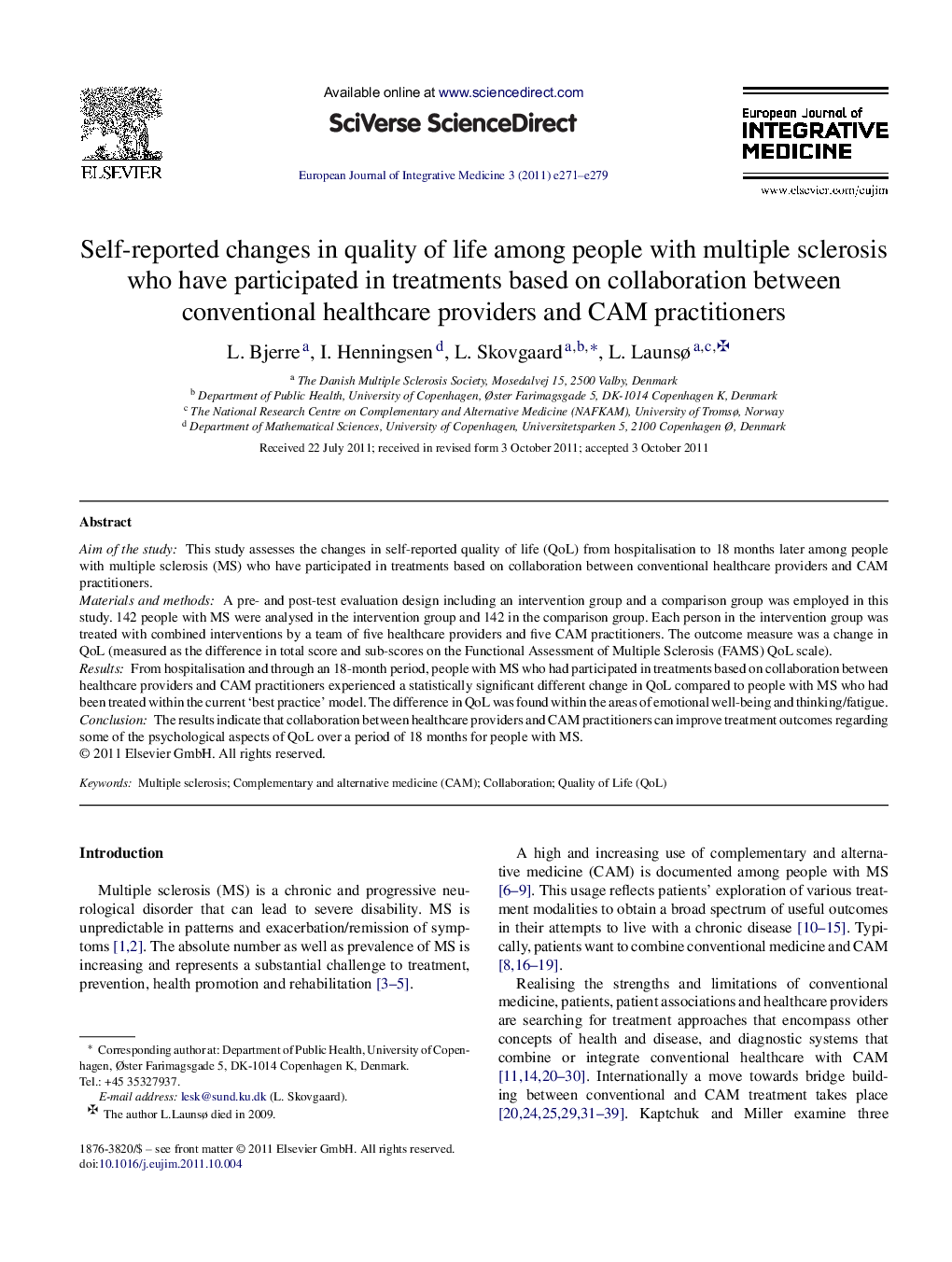| Article ID | Journal | Published Year | Pages | File Type |
|---|---|---|---|---|
| 5808758 | European Journal of Integrative Medicine | 2011 | 9 Pages |
Aim of the studyThis study assesses the changes in self-reported quality of life (QoL) from hospitalisation to 18 months later among people with multiple sclerosis (MS) who have participated in treatments based on collaboration between conventional healthcare providers and CAM practitioners.Materials and methodsA pre- and post-test evaluation design including an intervention group and a comparison group was employed in this study. 142 people with MS were analysed in the intervention group and 142 in the comparison group. Each person in the intervention group was treated with combined interventions by a team of five healthcare providers and five CAM practitioners. The outcome measure was a change in QoL (measured as the difference in total score and sub-scores on the Functional Assessment of Multiple Sclerosis (FAMS) QoL scale).ResultsFrom hospitalisation and through an 18-month period, people with MS who had participated in treatments based on collaboration between healthcare providers and CAM practitioners experienced a statistically significant different change in QoL compared to people with MS who had been treated within the current 'best practice' model. The difference in QoL was found within the areas of emotional well-being and thinking/fatigue.ConclusionThe results indicate that collaboration between healthcare providers and CAM practitioners can improve treatment outcomes regarding some of the psychological aspects of QoL over a period of 18 months for people with MS.
